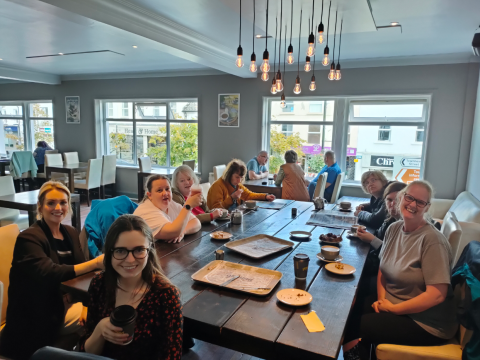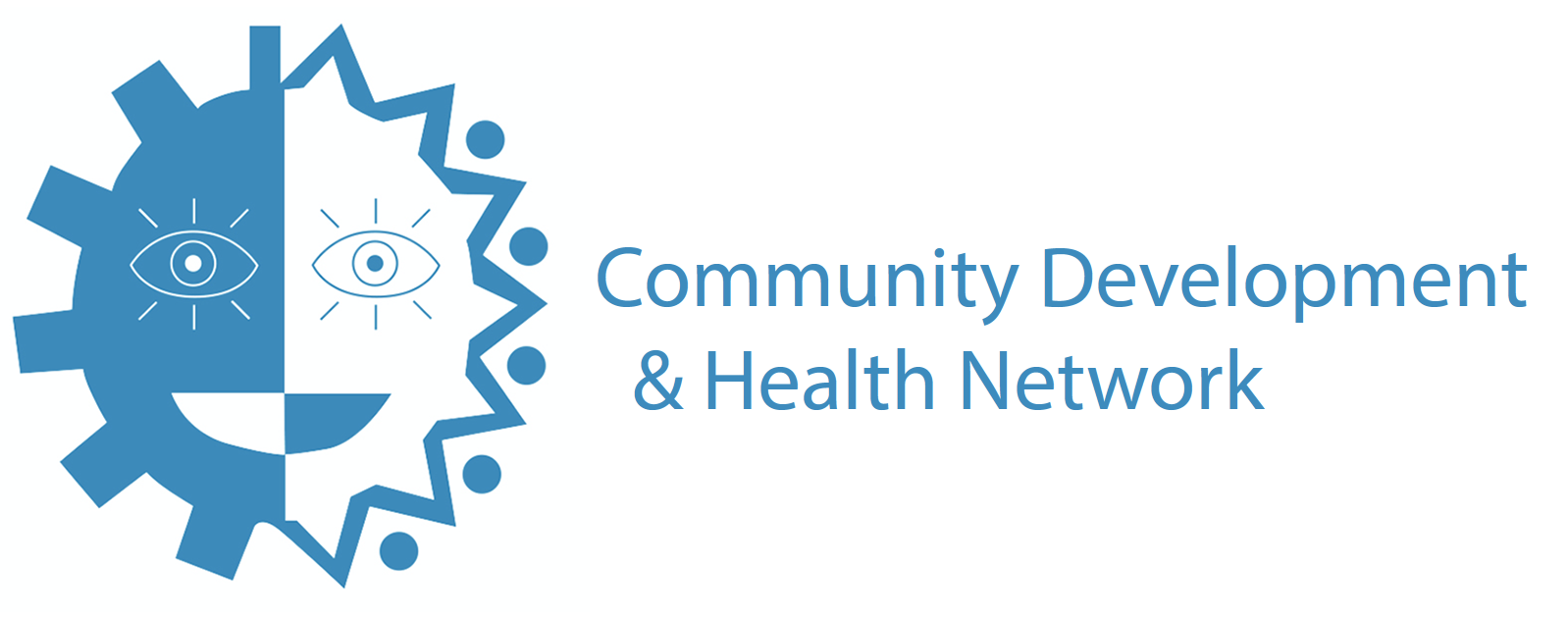Compass Advocacy Network and Kenndy’s Pharmacy

CAN and Kennedy’s cover taboo issues with a “CAN do attitude”
Compass Advocacy Network (CAN) is a user led organisation supporting people with learning disabilities, Autism and mental health issues to be able to realise their potential in work, social and community activities – basically in every aspect of their lives. CAN offers training & employment opportunities via social enterprise programmes and social independence & friendship programmes via their Base opportunities, Best Buddies NI, Hub (youth) and Blast (youth) as well as further projects focused on supporting independence and health & well-being for example.
They have had several successful BCPP projects over the years. In their most recent BCPP project they have partnered with Sarah & Kirsty, pharmacists in their local Kennedys Pharmacy. This new partnership has proved very successful with an excellent rapport being built with the facilitators and participants.
CAN and Kennedys have just completed a Level Two project and were awarded £12,000 to work with a group of ten women in the Causeway area. These women are all around menopausal age & have learning disabilities. The overall aim of the project was to empower them to take ownership of their own health and wellbeing and learn more about the issues that can affect us as we get older. Given the nature of the group it was important sessions were interactive. The group is vulnerable and recent research by McConkey et al suggest people with learning disabilities are 58 times more likely to die before the age of 50. It is research such as this that demonstrates the importance of health literacy for adults with learning disabilities in particular.
The group initially met with Andrea (CAN Staff member) and Sarah the Pharmacist to chat about issues they wanted to cover during their sessions. Some topics included: menopause, managing moods, dental health, let’s talk about bras, sexual health, podiatry, vitamins & minerals, skincare, sleep matters and healthy eating. Some of the issues can be seen as a bit taboo and this project enabled the ladies to explore them fully. They also incorporated the ‘Josephine and Jack’ project in their style of delivery which provides innovative health literacy information to vulnerable groups. Pharmacist’s Sarah and later Kirsty led on 10 sessions and co-facilitated a further 4 with groups the participants wanted to find out more information on. Andrea, Sarah and Kirsty made time after sessions to chat to the women and offer some ‘one-to-one’ support with them when required. For example, the facilitators were able to support one lady who received the news of a death during a session and provided her with calming techniques. Another participant was struggling in silence with incontinence and a referral was made to the GP and she is now attending an incontinence clinic. These are just a couple of examples of the one-to-one support that was offered during the programme.
During another session the group visited the pharmacy and were able to see first-hand what the pharmacy had to offer, where to find products and when to ask for help. Some of the women were supported to ask for a minor ailments' prescription for the first time and all reported they now had the confidence to do it again. Midway through the programme Sarah moved jobs and they joined up with Kirsty a pharmacist from the same Pharmacy. The group say Kirsty has also developed an instant bond and great rapport with the group.
At the beginning of the project 44% of participants stated they did not know the services the pharmacist had to offer. By the end of the project the figure was 100%. 100% of participants now feel more confident in going to their pharmacist for support and advice.
Andrea Morrow, Project Leader via CAN
“This project has had huge impact on the women involved. We have seen amazing progress in relation to them being empowered to take ownership of their own health. We have had so many laughs and I have loved seeing them gel as a group and be so supportive of one another. Some strong friendships have been made and I believe these will continue to flourish after this project ends. The ladies have very much driven the project and it has been a great learning experience for me too”.
Quote from Mandy (participant) – 1 - “It has been so great. They have helped me a lot and now I know it’s ok to just ask someone or even go and talk to the chemist if I need help with certain things. I have got prescriptions for myself on the minor ailments scheme…I didn’t even know I could do that! We have had such a laugh and I wish it never had to end”
Quote from Melody (participant) - "I kept saying NO to a smear. I was so scared. Now I have been able to go and get it done. I had help from this group. I did well"
Pharmacist Kirsty beautifully captures the reciprocal nature of BCPP. "In my opinion I think this project has been of massive benefit to myself and the ladies too. It's helped me to tailor my communication skills and ways of explaining health related topics so as those with learning disabilities are able to understand and are therefore able to relate if it's something that perhaps affects them. By doing this I have been able to intervene with a few issues that some of the ladies were dealing with and have been able to help point them in the right direction. I do think the ladies have learnt something new about some of the topics covered such as healthy eating and sleep hygiene and have shown good interest in all topics covered. The practical activities and out activities have also been a fun way of learning new things for everyone."


